Recently, I attended a cooking demonstration hosted by Foods and Wines of Spain and ICEX Spain Export and Investments. The event provided a unique opportunity to explore Spain’s authentic cuisine and wine, offering a continuation of my culinary journey from five years ago. Back then, I spent weeks preparing for my trip to Granada and Madrid. I studied Spanish wine regions and tasted local varieties. My goal was to discover flavors not available at home. This event brought back those memories while deepening my appreciation for Spain’s rich gastronomic heritage.
This event, “Taste of Spain,” took place at Florida International University’s Chaplin School of Hospitality & Tourism Management. Chef Mat Schuster, Executive Chef and Owner of Canela Bistro in San Francisco, along with the Trade Commission of Spain, led the demonstration.
Stepping Out of My Comfort Zone
I have to admit that I felt like a fish out of water switching thoughts to Spanish food when I’ve been writing about all things Italy for four years. Also, having long left a career in education, it felt strange to be entering a university campus. I felt a little lost but immediately impressed. There is an energetic vibe that is equally matched by colorful interiors in areas such as the Bacardi Center, South Beach Wine and Food Festival offices, and classrooms. Here I was, foodie me, sitting among future hospitality professionals all wearing their chef’s whites.
Spanish Cheeses: Tradition Meets Terroir
We started with a tasting of various Spanish cheeses, each reflecting the terroir of its region. Chef Mat introduced Mahón-Menorca PDO cheese first. This buttery cheese comes from free-grazing cows on Menorca, who roam the island’s natural pastures, contributing to the cheese’s flavor. What’s particularly striking about this cheese is its yellow-orange color, achieved naturally by rubbing paprika into the rind. The cheese is also coated in olive oil, which serves two purposes: preventing mold and enhancing the flavor. It’s wonderful to see that no artificial dyes are used, aligning perfectly with sustainable, organic practices. The beautiful tints of the cheese not only make it visually appealing but also enhance its taste.
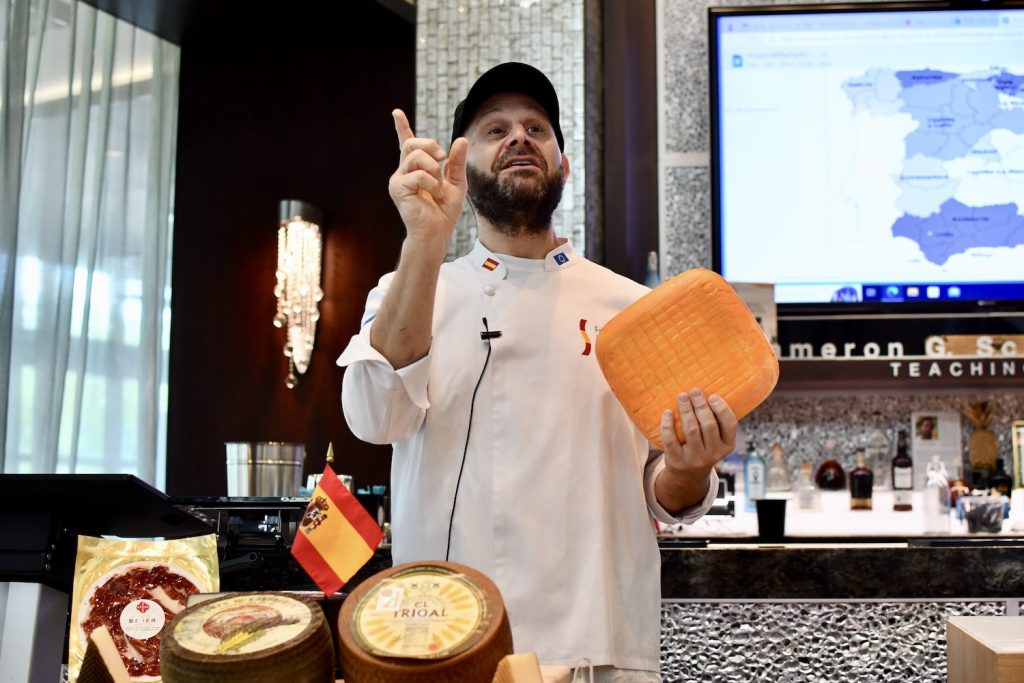
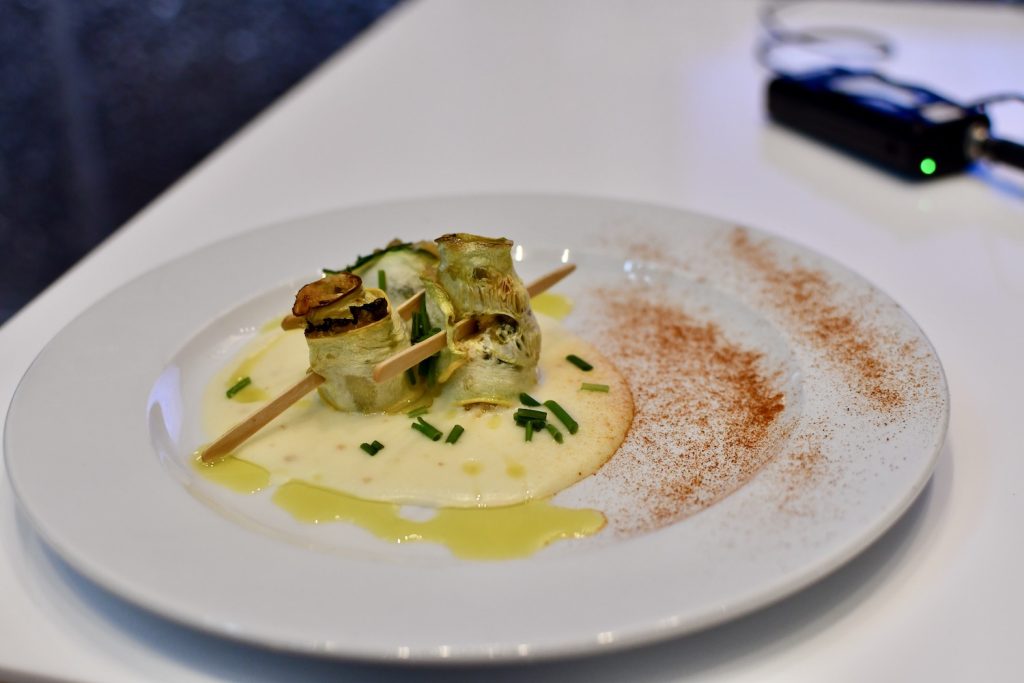
Next, we sampled Murcia al Vino PDO cheese, made from goat’s milk and washed in red wine, giving it a distinctive purple rind. Like the Mahón-Menorca, its vibrant color comes from natural ingredients, reflecting the care that goes into creating these artisanal cheeses. The dish, Stuffed Dates with Murcia al Vino PDO Cheese, Carrot ‘Bacon,’ and Piparra Peppers, paired the cheese with the sweetness of dates and the mild heat of the peppers, creating a fantastic contrast of flavors.
We then tried Manchego cheese by Corcuera, founded in 1947 in the Toledo region. Queso Manchego holds a Protected Designation of Origin, reflecting its deep connection to the land and its unique production process.
Iberico Ham: A Spanish Icon
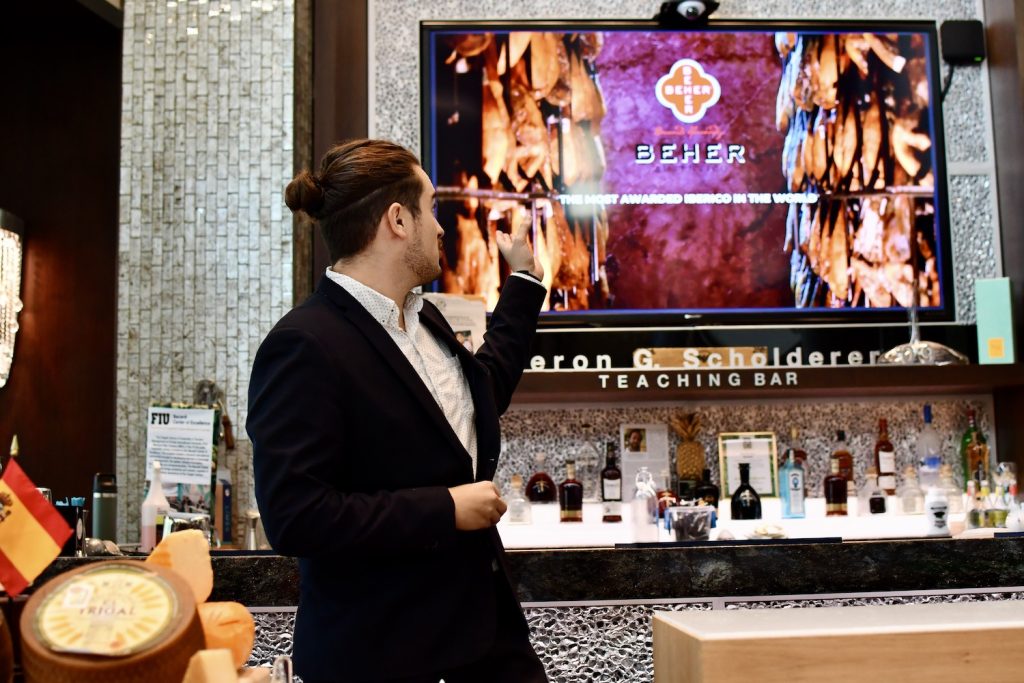
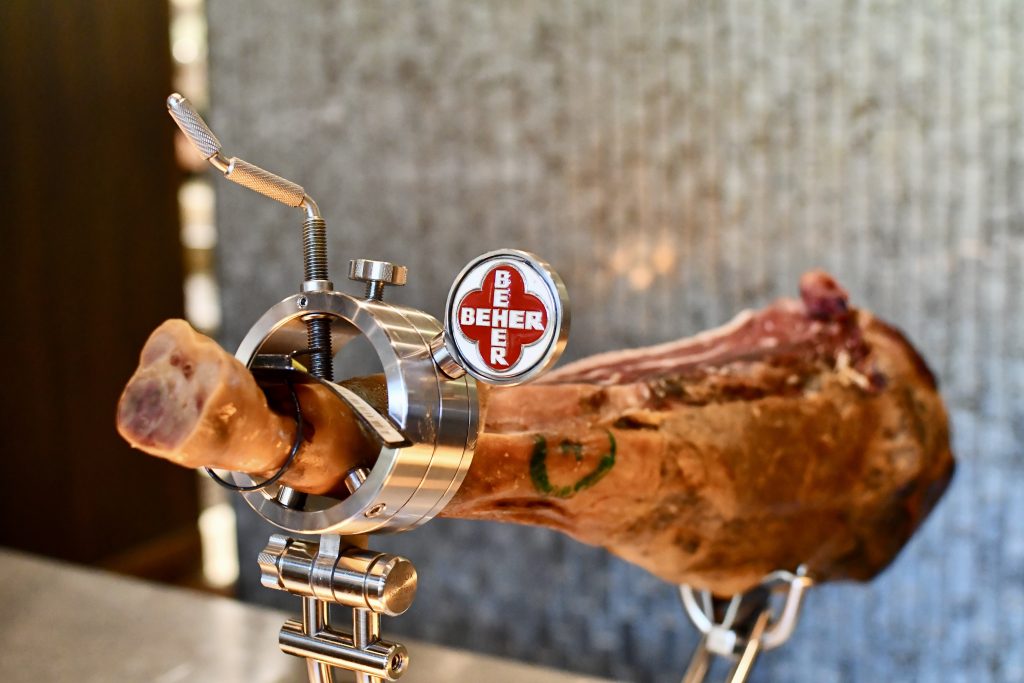
When we think of Spanish delicacies, Iberico ham is often at the top of the list. Ruben, from Beher Autentico, shared some fascinating insights about this product. The pigs used to produce Iberico ham are raised in a free-range environment, walking up to 10 miles a day and feeding on acorns, which gives the ham its unique flavor. This natural, sustainable farming method results in a high-quality product that is both delicious and environmentally friendly.
What struck me most about Ruben’s presentation was learning that the Iberico pigs have a lot in common with sheep in terms of their grazing habits. This slow, natural growth process is crucial to maintaining the ham’s rich, distinctive flavor. By supporting this type of traditional farming, we are also supporting a more sustainable food system.
Lubina: A Sustainable Choice
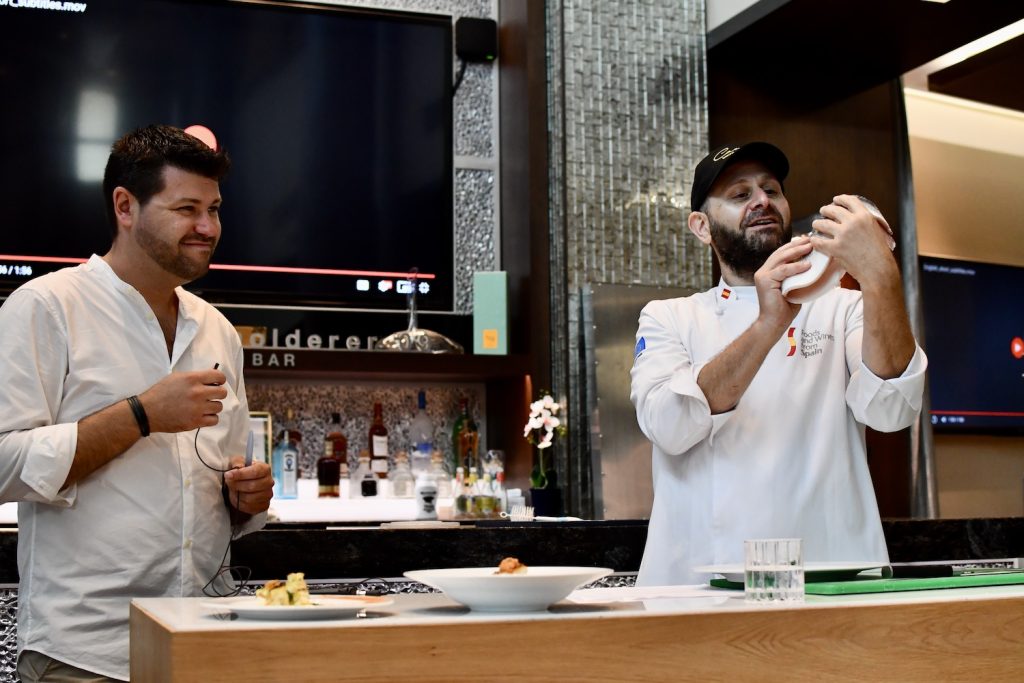
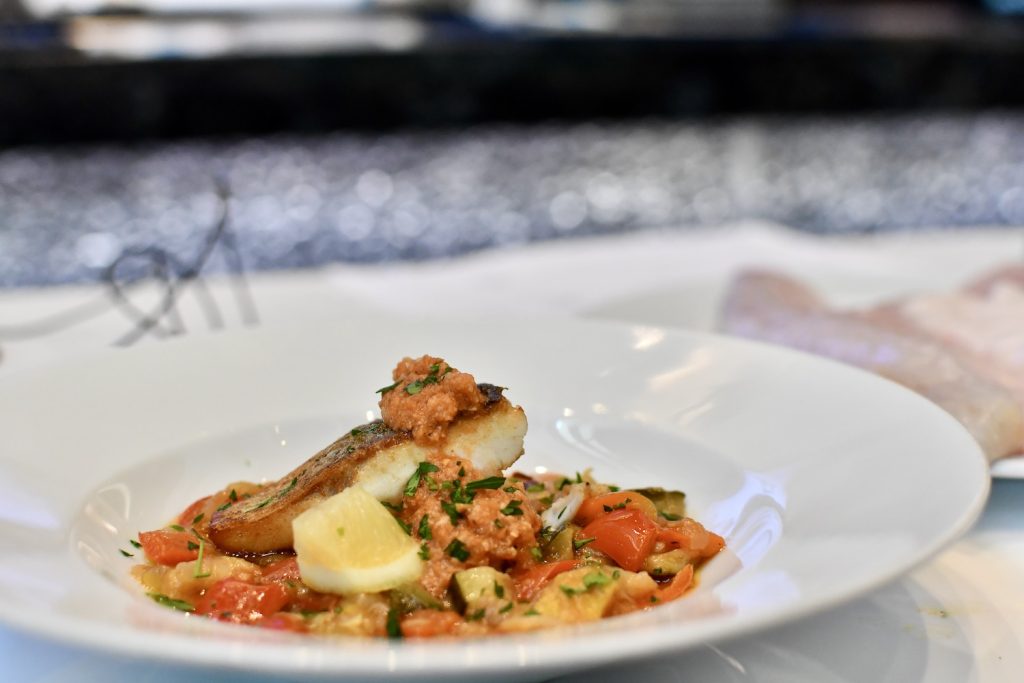
The next dish we sampled was Lubina (Atlantic Sea Bass) from Aquanaria, a small company based in the Canary Islands. Unlike Mediterranean sea bass, Aquanaria’s Lubina is raised in the Atlantic, where the fish build muscle by swimming against the current. This results in a firmer, meatier texture that was evident in the dish Chef Mat prepared: Seared, Rare Aquanaria Sea Bass with Pisto Manchego and Roasted Salsa Romesco.
Aquanaria is deeply committed to sustainability, using eco-friendly methods to farm their fish while minimizing their impact on the environment. Farmed fish often get a bad rap, but companies like Aquanaria are proving that with the right practices, farmed seafood can be a sustainable solution to overfishing. I found it fascinating that they ensure the fish are raised in clean, healthy environments that mimic their natural habitat. By doing so, they produce high-quality seafood while protecting wild fish populations.
Sustainable seafood practices like these are critical in today’s world, where many fish species are overfished and ecosystems are being damaged. Choosing responsibly farmed fish allows us to enjoy the bounty of the ocean without contributing to its destruction.
A Perfect Finale: The Richness of Spanish Cheese
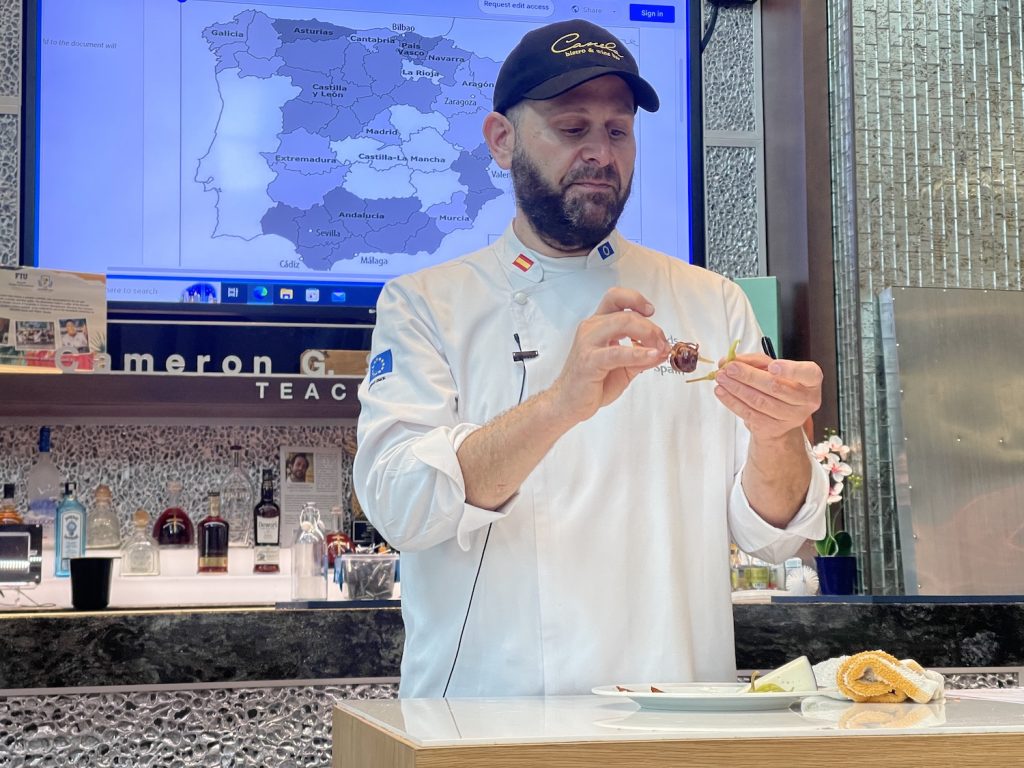
The tasting finale was delightful—Campo de Montalban Cheese, Quince Paste, and Toasted Walnut Phyllo Cigars with Quince Drizzle. This cheese, made from a blend of cow, goat, and sheep’s milk, offered layers of complexity that complemented the sweetness of the quince and the crunch of the phyllo cigars.
Why Sustainability Matters in Travel and Food
This event wasn’t just about tasting delicious food; it was a reminder of the importance of making sustainable choices in both travel and food. As a traveler, I’ve always believed that the way we experience food can shape our understanding of a culture. Now more than ever, I see the connection between food and sustainability.
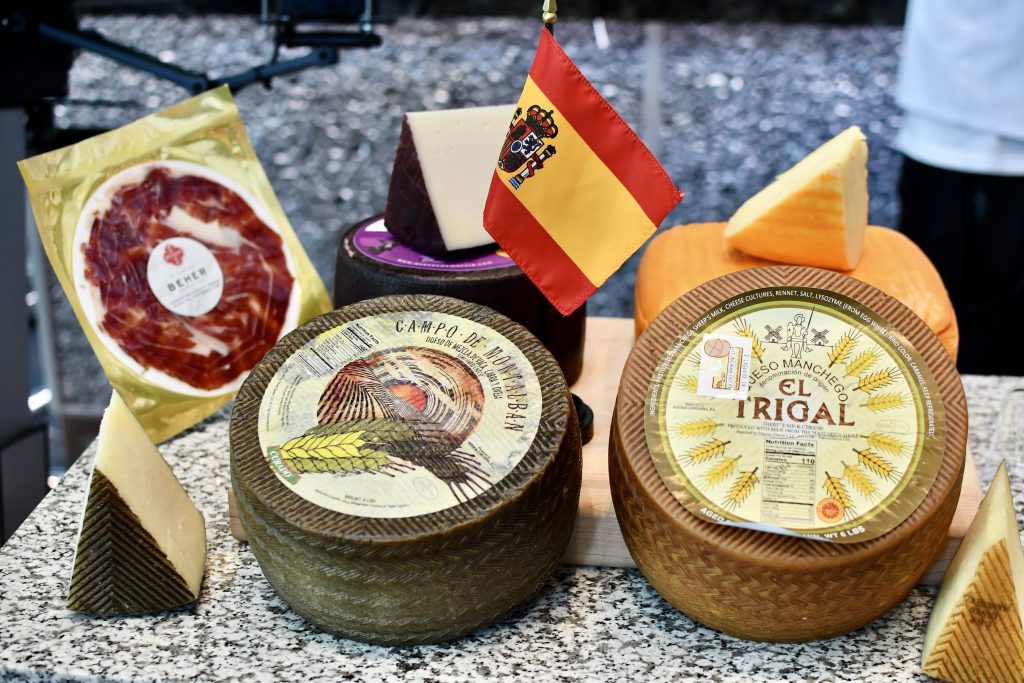
Choosing locally sourced, high-quality foods allows us to travel more mindfully. We can support small, family-owned businesses and traditional methods, ensuring that these practices continue for future generations. Whether it’s buying PDO cheeses or responsibly farmed fish, our choices have an impact.
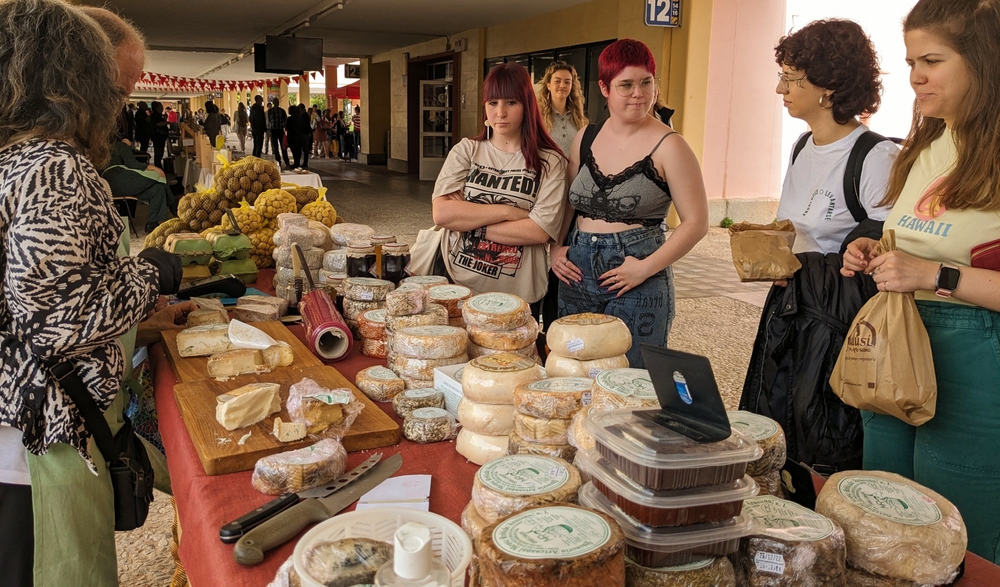
Caring for our planet goes beyond reducing waste or limiting our carbon footprint. It’s about protecting cultures, supporting local economies, and preserving the natural resources that allow us to enjoy these incredible foods. Spain, like many countries, has a rich food culture deeply tied to its land and history. By supporting these traditions, we help keep them alive.
This mindful approach extends beyond food production. It involves conscious travel and intentional eating. By choosing locally sourced, high-quality products, we make choices that support the environment and local communities. Whether it’s PDO cheeses or responsibly farmed fish, our decisions matter.
A Culinary Journey Worth Taking
By the end of the event, I no longer felt like a fish out of water. Instead, I felt a renewed appreciation for the connection between food, travel, and sustainability. Foods and Wines of Spain deeply commits to showcasing high-quality, sustainable products, inspiring me to continue supporting these efforts in my own travels and food choices.
If you’re curious to learn more about Spain’s culinary treasures, I highly recommend visiting their website. There, you can explore educational resources, including the FWS Academy, which offers in-depth courses on Spanish wines and foods.
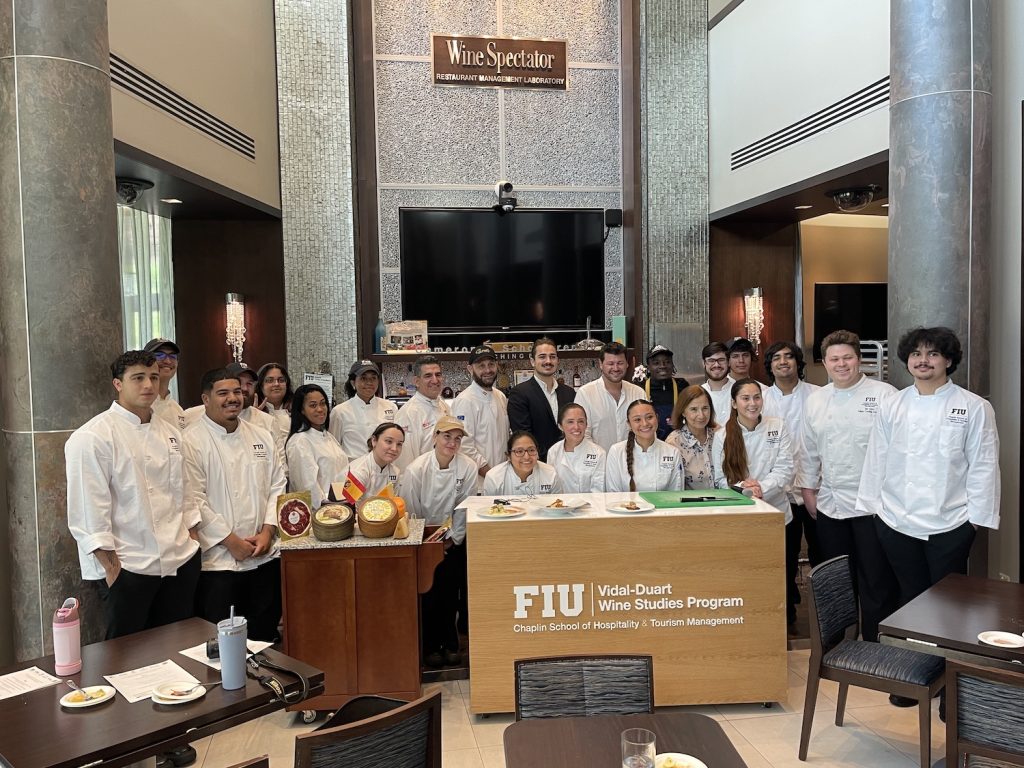
And if you’re considering a career in hospitality, take a tour of FIU’s Chaplin School of Hospitality & Tourism Management. It’s an impressive place, and who knows? Maybe you’ll be inspired to become part of the next generation of sustainable travel and food experts.
Fun Foodie Fact
DYK? There are benefits to eating goat cheese? Check out Queso de Murcia’s Instagram.
Read about my memories of a trip to Spain and a visit to Donde Sánchez Cosas Rica in Madrid.
